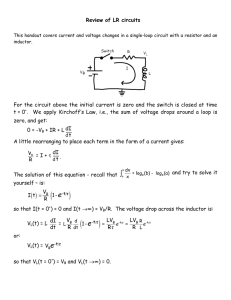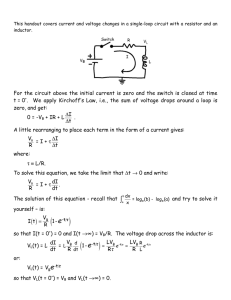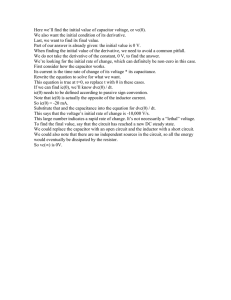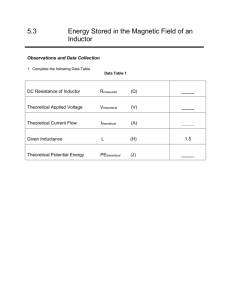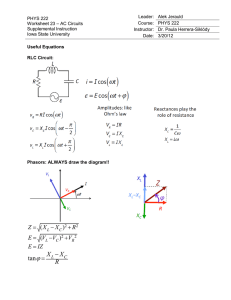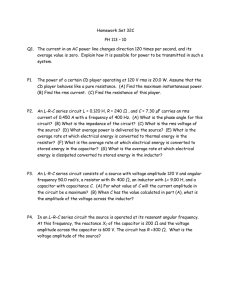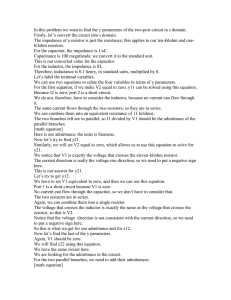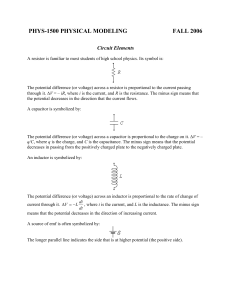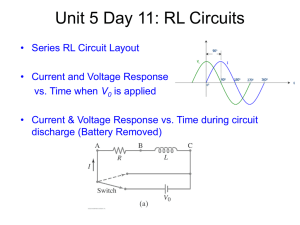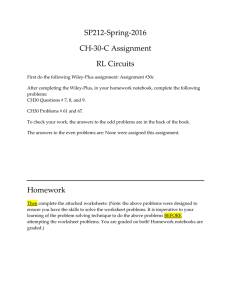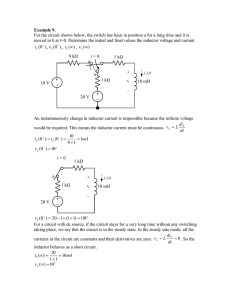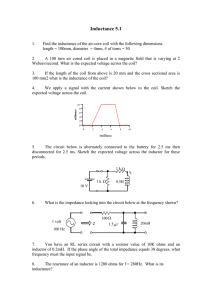Session 24- RC, LC & RLC Circuits
advertisement
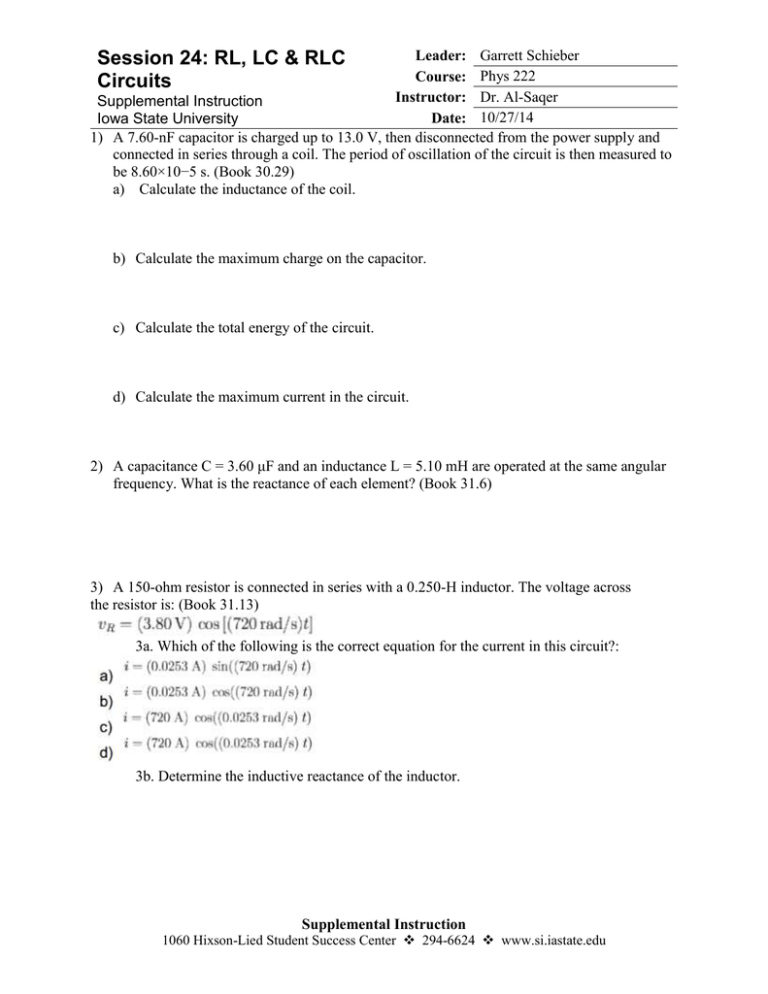
Leader: Garrett Schieber Course: Phys 222 Instructor: Dr. Al-Saqer Supplemental Instruction Date: 10/27/14 Iowa State University 1) A 7.60-nF capacitor is charged up to 13.0 V, then disconnected from the power supply and connected in series through a coil. The period of oscillation of the circuit is then measured to be 8.60×10−5 s. (Book 30.29) a) Calculate the inductance of the coil. Session 24: RL, LC & RLC Circuits b) Calculate the maximum charge on the capacitor. c) Calculate the total energy of the circuit. d) Calculate the maximum current in the circuit. 2) A capacitance C = 3.60 μF and an inductance L = 5.10 mH are operated at the same angular frequency. What is the reactance of each element? (Book 31.6) 3) A 150-ohm resistor is connected in series with a 0.250-H inductor. The voltage across the resistor is: (Book 31.13) 3a. Which of the following is the correct equation for the current in this circuit?: 3b. Determine the inductive reactance of the inductor. Supplemental Instruction 1060 Hixson-Lied Student Success Center 294-6624 www.si.iastate.edu 4) You have a 210-ohm resistor and a 0.410-H inductor. Suppose you take the resistor and inductor and make a series circuit with a voltage source that has a voltage amplitude of 31.0 V and an angular frequency of 260 rad/s. (Book 31.14) a) What is the impedance of the circuit? b) what is the current amplitude? c) What is the voltage amplitude across the resistor? d) What is the voltage amplitudes across the inductor? e) Does the source voltage lag or lead the current? f) Draw the phasor diagram
